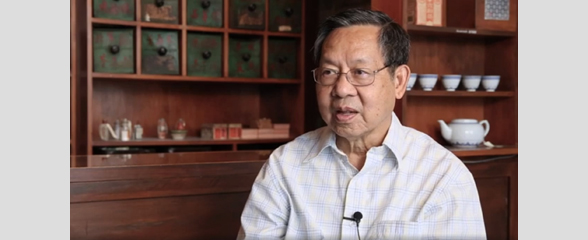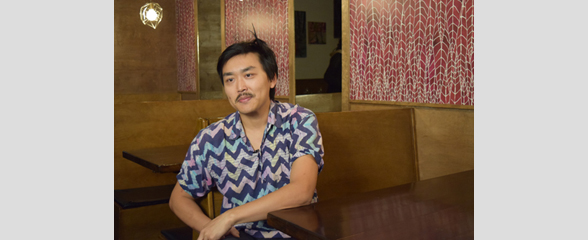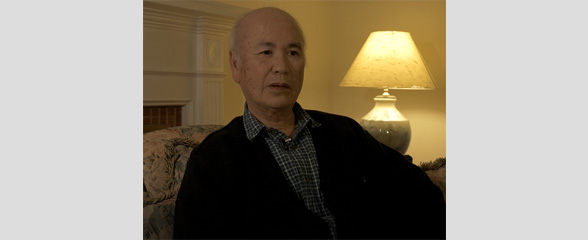Education

2013.022.003 Oral History Interview with Frank Liu
Frank Liu, former Director of Technology at MOCA, sits down with Tomie Arai to conduct an oral history recounting his experience growing up in Chinatown during the ‘90s and early 2000s. Liu discusses his family’s history and their experience immigrating to the U.S. from Fuzhou, Fujian when he was seventeen years old, in 1998. He discusses how his uncle was able to sponsor his family to come to the U.S. and how his family moved to Chinatown initially upon their arrival. He discusses how even though his family was able to immigrate to America legally through his uncle, many other Fujianese people at the time were smuggled to America illegally in hopes of a better future for themselves and their children. Liu talks about the two main groups of people in Chinatown: the Fujianese and the Cantonese. He discusses his ties to the Fujianese community in Chinatown through his mother, and how his family gets together for family reunions to see each other and feel connected through their Fujianese roots. He talks about meeting his wife and learning to communicate with her family, since she is originally from Taishan and her parents only speak Cantonese. He talks about how glad he is that his mother encouraged him to go to school and study instead of taking the more traditional route of earning money right away, and he remarks on how much he values his education. Frank introduces some artifacts that are important to his family’s history, such as photos from when they first immigrated, photos from the first time they rode the New York subway, and a digital camera that he saved for and was the first important object that he purchased for himself with his earned savings. The interview ends with the discussion of a Fujianese museum or community archive, and the materials or items that Liu would want included in that documentation effort.

2013.022.010 Oral History Interview with Yun Xing Huang
Yun Xing Huang was interviewed by MOCA to talk about his immigration and living experiences in New York City’s Chinatown. As a professional singer, Huang owned a nightclub in Fujian before coming to the US during the prevalent immigration wave in China. He worked as a food delivery person before opening a floral shop on his own, singing songs for wedding parties, and acting in films. He praised the brave spirit of Fujianese people but touched upon the geographical discrimination between Changle people and Lianjiang people, who are both from Fujian province, in Chinatown.
However, when asked about his views on Chinatown, Huang expressed negative sentiments. He drew from his own experience in a film depicting the living situation in Chinatown, where new immigrants live in small spaces and must even climb up to four-level beds due to limited budgets. This continues to be a reality for many immigrants in Chinatown today.
In the end, Huang emphasizes the importance of legal status for Chinese immigrants. Their temporary immigrant status discourages them from traveling, buying houses, and conducting large business transactions. Only legal status can guarantee stability and prosperity for the Chinese community.

2014.035.004 The Family Journey of Lucy Kan
The Journey Wall is a custom art installation created for MOCAs lobby by renowned artist/designer Maya Lin. The wall is composed of bronze tiles through which Chinese Americans can permanently honor and remember their family roots. Each tile bears the name of an individual or family, their ancestral home, and current place of residence in America. The complete wall will highlight the expansiveness of the Chinese American Diaspora and the diversity of immigration stories from across the country - from artists to businessmen. The interviews in this collection are the stories of the Chinese American families that are part of the Journey Wall installation.

2014.035.005 The Family Journey of Victor Kan
Victor Kan discusses his philosophy and the history of his family with MOCA. He discusses his education at the University of Chicago and his experience growing up Chinese in America with only a small understanding of English. He discusses this experience in depth, and growing up learning from his classmates at age 13 how to speak English. His classmates encouraged him to join Boy Scouts and go to school dances with them, and he felt very supported by this American community. Victor went on to study Computer Science at UChicago. He discusses his childhood vacationing in Jong Son, China and explains that he bought his Journey Wall tile to give back to the community, but also to show his grandchildren and great grandchildren where they came from. He is not sad that his grandchildren may not look exactly like him; instead he believes that his children have found love and he is very happy for them. He discusses his philosophy of life for all immigrants and shares the anecdote of how he met his wife, Lucy.

2016.033.009 The Family Journey of The Chiu Family
Tony Chiu discusses his life in America and how he grew his professional career as a research chemist. Chiu dedicated his adolescence and young adult years to his studies because he had no other choice but to study in order to become successful. Chiu discusses the hardships he had to face as a Chinese immigrant in the United States. English not being his first language prevented him from studying what he wanted to. His choice of chemistry was a result of necessity rather than choice. Chiu talks about his marriage with his wife, who was also hardworking and career driven. In this interview, Chiu explains how he co-parented with his wife and how they raised their children to be hard workers without pressuring them to succeed.

2016.037.027 Oral History Interview with Jonathan Wu 2015/11/09
This oral history focuses on the culinary practice of Jonathan Wu. He discusses his training and his time living in France and Italy. He discusses how he learned his Chinese cooking from his mother along with developing dishes for his restaurant Fung Tu.

2016.037.030 Oral History Interview with Ho-chin Yang and Ellen Yang 2015/12/15
This oral history focuses on the culinary practice of Ho-chin Yang. He discusses foods that he ate while growing up and moving to the United States. He reflects on the difference between Chinese and American food. Yang was first a language teacher then transitioned into a restaurant owner and cook at his restaurant the Home Plate Café. He later went on to teaching and instructed cooking and language classes.